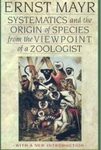By: Massimo Bucciantini(Author), Michele Camerota(Author), Franco Giudice(Author), Catherine Bolton(Translated by)
352 pages, 25 b/w photos, 8 colour illustrations, 5 maps
![Galileo's Telescope Galileo's Telescope]()
Click to have a closer look
About this book
Customer reviews
Biography
Related titles
About this book
Between 1608 and 1610 the canopy of the night sky changed forever, ripped open by an object created almost by accident: a cylinder with lenses at both ends. Galileo's Telescope tells the story of how an ingenious optical device evolved from a toy-like curiosity into a precision scientific instrument, all in a few years. In transcending the limits of human vision, the telescope transformed humanity s view of itself and knowledge of the cosmos.
Galileo plays a leading but by no means solo part in this riveting tale. He shares the stage with mathematicians, astronomers, and theologians from Paolo Sarpi to Johannes Kepler and Cardinal Bellarmine, sovereigns such as Rudolph II and James I, as well as craftsmen, courtiers, poets, and painters. Starting in the Netherlands, where a spectacle-maker created a spyglass with the modest magnifying power of three, the telescope spread like technological wildfire to Venice, Rome, Prague, Paris, London, and ultimately India and China. Galileo's celestial discoveries – hundreds of stars previously invisible to the naked eye, lunar mountains, and moons orbiting Jupiter – were announced to the world in his revolutionary treatise Sidereus Nuncius.
Combining science, politics, religion, and the arts, Galileo's Telescope rewrites the early history of a world-shattering innovation whose visual power ultimately came to embody meanings far beyond the science of the stars.
Customer Reviews
Biography
Massimo Bucciantini is Professor of the History of Science at the University of Siena. Michele Camerota is Professor of the History of Science at the University of Cagliari. Franco Giudice is Professor of the History of Science at the University of Bergamo.
By: Massimo Bucciantini(Author), Michele Camerota(Author), Franco Giudice(Author), Catherine Bolton(Translated by)
352 pages, 25 b/w photos, 8 colour illustrations, 5 maps
"Over six decades I have read many biographies of Galileo and his discoveries, but never have I encountered a more exciting presentation. Reading about the prompt pushback against Galileo in Florence itself was an eye-opener, to mention a special climax to this brilliantly researched and illustrated account."
– Owen Gingerich, Harvard–Smithsonian Center for Astrophysics



































